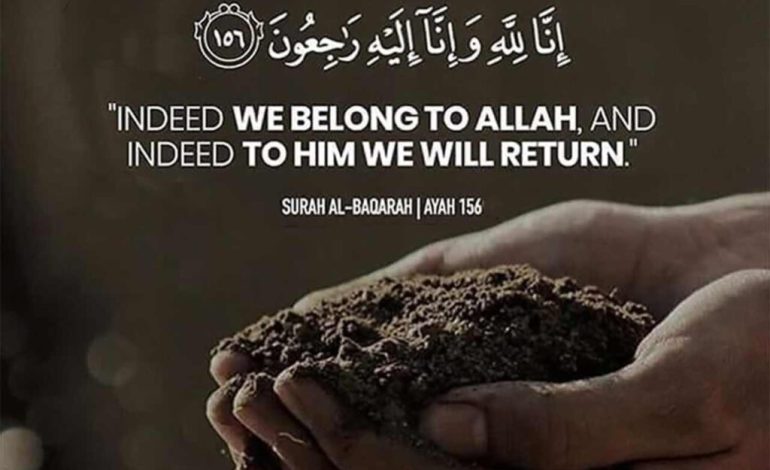
Finding solace and strength during times of grief is a universal human experience. In Islam, the embrace of faith becomes an anchor for believers as they navigate through these challenging moments. The teachings of Islam offer comfort, guidance, and a sense of purpose that can help individuals find healing amidst their sorrow.
From understanding the essence of Islam to delving into its pillars and exploring its approach to grief. Let us embark on this journey together as we discover the wisdom and compassion embedded within this beautiful religion. So grab a cup of tea or coffee, sit back, and let’s dive right into it!
What is Islam?
Islam, derived from the Arabic word meaning “submission,” is a monotheistic religion that originated in the 7th century CE in the Arabian Peninsula. It was founded by Prophet Muhammad, who Muslims believe to be the final messenger of Allah (God). Islam encompasses various beliefs and practices that guide its followers in their spiritual journey.
At its core, Islam teaches believers to submit themselves entirely to Allah’s will and live a righteous life guided by His teachings. The Quran, considered the holy book of Islam, is believed to be a direct revelation from Allah through Prophet Muhammad. It serves as a comprehensive guide for all aspects of life – from personal conduct and family relationships to societal and economic matters.
Hadith on Someone’s Death in Islam
The following hadith gives an excellent account of Prophet Muhammad (pbuh) actions and actions in funerals. The first Hadith comes from Sahih Muslim regarding being respectful and being present at funerals (despite the religion or the cultural beliefs among the dead).
It is reported by the ‘Amir Ibn Ra’a (may Allah be pleased with his) The Prophet (pbuh) told us: Every time you witness a funeral processional, be there to watch it until it goes away or is taken to the ground.
This verse from the Quran 2:156 is often recited when you receive the news that someone has passed away.
Transliteration From Arabic to English – Inna Lillahi wa inna ilayhi raji’un
Central to Islamic belief
Muslims also consider Hadiths – collections of sayings and actions attributed to Prophet Muhammad – as an essential source of guidance alongside the Quran. These texts provide further insight into Islamic principles and help interpret religious teachings within different contexts.
Central to Islamic belief is Tawhid – monotheism – which emphasizes the oneness of Allah. Muslims believe that Allah is compassionate, merciful, just, and omnipotent. He remains directly involved in human affairs while allowing free will for individuals.
Five Fundamental Pillar of Islam
Five Pillars are fundamental acts of worship enshrined in Islam: Shahada (faith), Salah (prayer), Zakat (charity), Sawm (fasting during Ramadan), and Hajj (pilgrimage to Mecca). These pillars serve as practical manifestations of faith aimed at fostering spirituality, community engagement, self-discipline, empathy towards others’ needs.
By embracing these pillars along with other practices like reciting prayers throughout the day or engaging in voluntary acts of charity known as Sadaqah. Muslims strive for closeness with Allah while seeking righteousness both individually and collectively.
Five Pillars of Islam are mentioned below:
Shahada
The person is a Muslim by delivering the fundamental declaration of testimony or testimony. “I affirm the existence of God other than God and I affirm the fact that Muhammad is the messenger from God.” Different versions of the shahada can be used in a myriad of different contexts.
Salat
It refers to a ceremony of prayer, which is ritualized and performed at specific times every day in front of Mecca. Salat is comprised of a sequence of recitations and bodily postures such as prostration with the forehead pressed against the ground.
Zakat
This is a mandatory charitable contribution which is owed annually by each Muslim at a amount that is 2.5 percent of income-producing liquid assets and property. Zakat is a charitable contribution that aids in the advancement of Islam.
Saum
It is a fast from the dawn until dusk every day in this ninth month (Ramadan), Muslims are not allowed to drink, eat or have sexual interactions. It is a time for spiritual renewal.
Hajj
at least one time in their lives in the event that they are financially and physically capable. Every Muslim undertakes the pilgrimage to Mecca in the twelfth Muslim month. In the five holy days during the Hajj people who make the pilgrimage repeat the ceremony first performed by Abraham and his family. Which includes circling the holy shrine (Ka`ba) and sitting on the Arafat plain and offering an offering of sacrifice.










